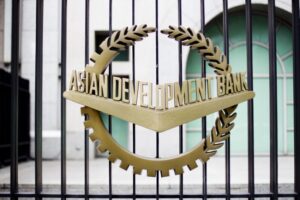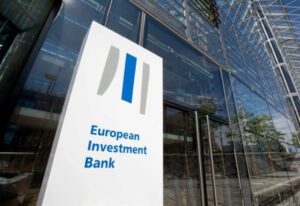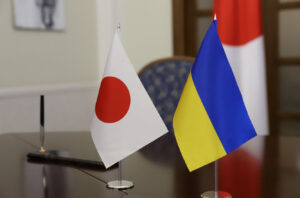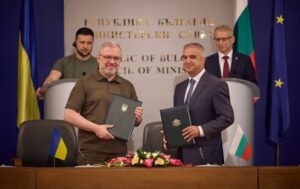
Croatia will provide another EUR 5 million for the Ukrainian energy sector, Prime Minister Denys Shmyhal said following a meeting with Croatian Prime Minister Andrej Plenkovic.
“Mr. Plenkovic announced a new package of military assistance and another EUR 5 million for the Ukrainian energy sector. Ukraine highly appreciates all the assistance provided by Croatia. Thank you for supporting our country in all spheres,” Shmyhal wrote on his Telegram channel.
In addition, he said that the countries had signed two documents in the field of education and justice, which will contribute to Ukraine’s further European integration.
Among other things, the prime minister said that on Wednesday, the Croatian demining company DOK-ING opened its representative office in Ukraine.

The Asian Development Bank has approved two loans to Uzbekistan totaling $400 million to implement large-scale reforms in the energy sector aimed at improving its efficiency and competitiveness, as well as developing the country’s financial markets.
ADB’s Director General for Central and West Asia, Evgeny Zhukov, said that the reforms supported by these programs will help create an enabling environment for regulators and companies to play their part in stimulating development by creating reliable domestic financial markets and meeting energy needs while fighting climate change.
ADB will provide $300 million to reform Uzbekistan’s energy sector, including creating a more effective governance structure, improving legislation, and attracting private investment.
To develop Uzbekistan’s financial market, ADB will provide $100 million to implement regulatory and institutional reforms aimed at improving market conditions to optimize financial transactions and services, and to increase supply and demand side measures to grow capital markets.
Uzbekistan joined ADB in 1995, and since then, the bank has provided $12.5 billion in loans, grants, and technical assistance to the country.

The Laws of Ukraine No. 3853-IX and No. 3854-IX of 16.07.2024, from 00:00 hrs. July 27, which provide for the introduction of exemption from duty and VAT on imports into Ukraine: power generating equipment, equipment for wind and solar generation, batteries (except for low capacity batteries), reports the State Customs Service of Ukraine on Friday.
The Service separately draws attention to the fact that such important goods for the population as: electric generators, inverters, lithium-ion batteries and charging stations on their basis, as well as solar panels for repair and/or replacement from damage and expansion of the capacity of existing solar power plants fall under preferential import to Ukraine.
Also in the department emphasize that the list of goods that are exempt from customs duties on imports includes equipment for the manufacture of means of countering technical intelligence and/or repair of mechanized demining machines, and such defense equipment as means of radio-electronic means of detection and countering unmanned aerial vehicles.
“The amendments provide for the period of martial law in Ukraine exemption from customs duties for goods imported for energy security, including those transported (forwarded) to the customs territory of Ukraine in international mail and express shipments, for free circulation and classified under the following codes according to the UKT FEA: 8406 (except 8406 10 00 00), 8410 (only hydraulic turbines and their parts), 8483 40 21 00, 8502 20 40 90, 8502 20 60 90, 8502 20 80 90, 8411 (except turboprop and turbojet engines and their parts), 8501 64 00 00 00 00, 8504 40 84 00 (except inverter welding machines), 8504 40 88 00 00 (except inverter welding machines), 8504 40 90 00 00 (except inverter welding machines), 8507 60 00 00 (except energy storage units of less than 300 watts AC and/or DC and individual lithium-ion cells of less than 200 Ah capacity), 8541 43 00 00 00, 8537 (except for 8537 10 98 10), 8503 00 99 00 (only for wind power electric generator sets), components for the organization of own production and repair in Ukraine of mechanized demining machines, classified in commodity positions 8427, 8430, 8479 under the UKT FEA, as well as for the manufacture by enterprises of Ukraine active means of countering technical intelligence, classified in commodity positions 8517, 8525, 8543 under the UKT FEA“, – specified in the State Customs Service”, – specified in the State Customs Service.

The European Investment Bank (EIB) Group is planning new loans totaling EUR450 million for Ukrainian energy investments, including the reconstruction of hydroelectric power plants and power grid infrastructure damaged by Russian attacks, as well as the restoration of district heating networks in Ukrainian cities.
According to a press release on the bank’s website, another EUR 86 million will go to Ukraine’s national power grid operator, NPC Ukrenergo, to build drone shelters for power plants.
“We are stepping up our support to help protect and repair Ukraine’s infrastructure before winter,” the release quotes EIB President Nadezhda Calvigno as saying, “On July 22, she briefed EU foreign ministers on these measures and held a regular video conference with Ukrainian Finance Minister Sergii Marchenko to discuss progress on ongoing projects, especially in energy infrastructure.
According to her, the bank will also expand its support for Ukraine’s economy by facilitating access to finance for businesses and promoting trade with the EU.
In the business finance component of the latest support package, the EIB Group approved three partial portfolio guarantees, which are expected to lead to more than EUR 110 million in new lending to Ukrainian micro, small and medium-sized enterprises through three Ukrainian banks. It is specified that the guarantees are to be signed in the second half of 2024 with the respective banks and will support 550 Ukrainian companies, preserving about 8,250 jobs.
In addition, the EIB Group intends to provide partial portfolio guarantees to five more banks in Ukraine by the end of the year under the EU4Business Guarantee Facility, the release said.
According to the release, this week the EIB is also joining forces with Ukrsibbank, the Ukrainian subsidiary of BNP Paribas Group and one of Ukraine’s largest banks, to launch a revolving credit line of at least EUR150 million in Ukrainian hryvnia to support businesses affected by the war. The local currency facility is expected to be operational by the end of 2024. This is the EIB’s second initiative to stimulate local currency lending in Ukraine, following a partnership with Citibank Ukraine for between $50 million and $100 million in Ukrainian hryvnia.
In addition, the release notes, by the end of this month and following the signing of an agreement with the European Commission in June, the European Investment Fund (EIF) will start accepting applications under a EUR300 million export credit guarantee facility to support EU companies trading with Ukraine. The initiative will offer guarantees to export credit agencies in EU member states, as well as Norway and Iceland, that want to help export to Ukraine.
Following a videoconference on July 22, the Ministry of Finance of Ukraine announced that it expects the EIB to approve a EUR250 million package of support for Ukraine’s energy sector in the near future.
In general, according to the Ukrainian side, the volume of EIB initiatives in the public sector is 26 projects worth EUR 5.3 billion, and the volume of the portfolio of joint projects in the public and private sectors is the largest for all years of cooperation and exceeds EUR 7 billion, including about EUR 2 billion of EIB investments in all areas since the beginning of the full-scale war.
Regarding current initiatives, the parties also discussed preparations for the signing of a financial agreement between Ukraine and the EIB on the project “Implementation of the Emergency Assistance System for the Population by a Single Number 112”, as well as potential joint projects, in particular, aimed at providing housing for Ukrainian citizens.
As reported, in 2024, Ukraine and the EIB signed a Memorandum of Understanding on cooperation in the public and private sectors of Ukraine’s economy. The Memorandum identifies priority areas of cooperation for the next 10 years.

Japan has purchased large-sized equipment for Ukraine with a total capacity of about 200 MW, including 5 gas turbines and 7 large transformers, as part of its support for the energy sector.
The announcement was made during a meeting in Kyiv on Sunday between Ukrainian Energy Minister Herman Galushchenko and Japanese Foreign Minister Yoko Kamikawa. The equipment was purchased and delivered by the Japanese government in cooperation with UNDP and the Japanese International Cooperation Agency Jica.
“This is very important equipment. Some of it is still on the way, but two autotransformers have already been installed, and now we are talking about two more similar ones, as well as five gas turbine units and seven large transformers. We are talking about decentralization of the power system and an additional 200 MW of capacity,” Galushchenko said at a briefing after the meeting.
According to him, the equipment provided by Japan will be distributed throughout the country.
“This fully coincides with the goals of our national energy strategy aimed at decentralizing the energy sector,” the minister added.
In her speech, Yoko Kamikawa categorically condemned Russia’s ongoing attacks on civilian objects and the population and assured of full support for Ukraine.
“It is very important to support Ukrainians to protect them this winter. The equipment that Ukraine receives from us will benefit about 5 million of its citizens,” she said.

A memorandum of understanding between the Ukrainian and Bulgarian energy ministries on cooperation in the energy sector was signed in the presence of Zelensky and Bulgarian Prime Minister Nikolo Denkov during an official visit of Ukrainian President Volodymyr Zelensky to Bulgaria.
According to the press service of the Ukrainian head of state, the document was signed by Ukrainian Energy Minister Herman Galushchenko and Bulgarian Energy Minister Rumen Radev.
“The memorandum is aimed at creating framework conditions for deepening cooperation in the energy sector of Ukraine and Bulgaria based on the principle of mutual benefit and taking into account common interests and goals of both countries,” the statement said.
Ukraine and Bulgaria undertook to provide affordable energy, as well as to support industrial and regional development, security and prosperity of their peoples, expand cooperation and a shared commitment to protect the environment and mitigate climate change and reduce carbon emissions.
It was noted that taking into account Ukraine’s status as a candidate for EU membership and Bulgaria’s obligations as a EU member state, the sides agreed to intensify further mutually beneficial cooperation in the field of nuclear energy, green energy, hydrogen, as well as energy storage systems and smart grids.
Sharing knowledge and experience to protect energy infrastructure from physical, electromagnetic, and cyber threats is a priority in the cooperation.
As reported, Bulgarian parliamentarians by a majority vote delegated the country’s Energy Minister to negotiate with his Ukrainian counterpart on the possibility of selling equipment intended for Belene NPP to Kiev, Bulgarian National Radio (BNR) reported Thursday.
The decision was supported by 135 deputies, while 57 opposed.
Earlier, BNR reported that Ukraine had expressed interest in purchasing the reactors intended for Belene NPP.
Bulgaria abandoned the project in 2012.